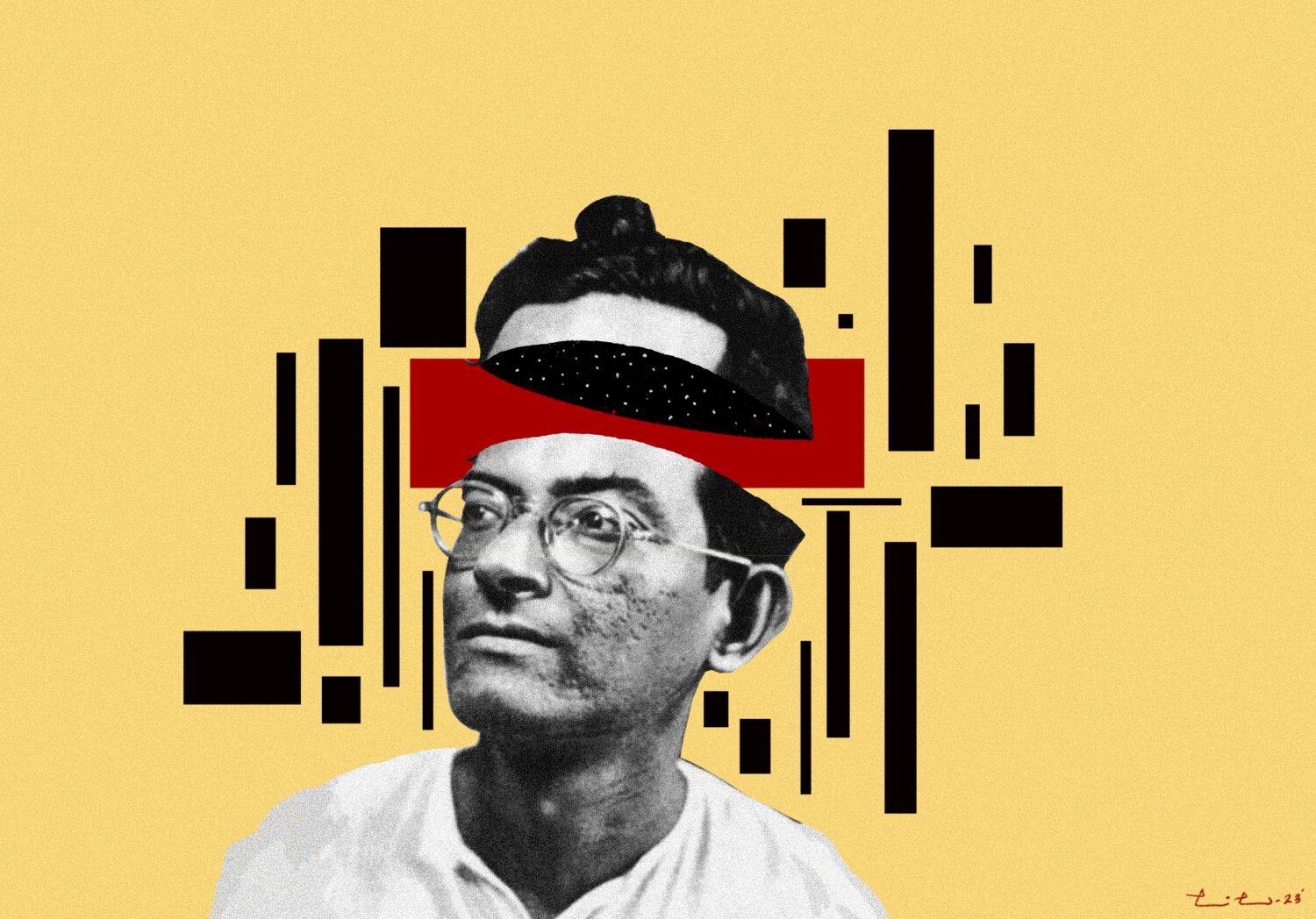The youngest and the most scathingly morbid of the famed Bandyopadhyay trio of Bengali literature (the other two being Bibhutibhushan and Tarashankar), in the expanse of thirty-six novels and one hundred and seventy-seven short stories, Manik Bandyopadhyay (1908-1956; originally named Prabodh Kumar) carried forward the avant-garde line of writing of the Kallol era (1923-1935).
The 1920s Bengal was rife with inflation, unemployment, and food shortage among other maladies. The Kalloleans pledged to redeem this society by critically capturing its real, execrable condition. Thereafter, denouncing the aesthetics of Rabindranath Tagore, which they deemed illusive, these writers drew on their personal experience and wrote of modern Bengal’s grime, filth, and the marginalised underprivileged classes whose activities and speech practices were hitherto virtually exiled from the ‘pure’ realm of literature. In contrast to the Calcutta-centricity of contemporaries like Premendra Mitra and Manish Ghatak, Manik – much like the colliery-chronicler Shailajananda Mukhopadhyay – equally focused on the mofussil setting in capturing the human alienation characteristic of his times.
Beginning from the 1940s, when Manik joined the Communist Party of India (CPI) after his exposure to political thoughts during World War II and witnessing multiple labour protests in Bengal, Marxism became the mainstay of his works. His careful readings of socialist philosophers manifested in the thorough understanding of and allegiance to socialist tenets discernible in his fictions – something missing in the work of later politically-informed writers like Mahasweta Devi, who was inevitably disabused of her hopes in CPI because of its hypocrisy during the 1960s. Henceforth, as an avowed Marxist analyst, Manik conspicuously grounded his psychological exploration of the modern human condition in its socio-economic context without ever letting the literary careen on to the mere polemic.
A need-driven world of bare minimums
In Manik’s storyworld, the struggle of survival remains ceaseless. Even when the spectre of shrivelled bodies shuffling through a famine-stricken land is replaced by the lush green of new harvest, the peasants anxiously depend on the clemency of zamindars, instituted by the colonial system, to spare them a portion of their own harvest. The moment the aspirations of these social underlings try to tiptoe beyond the exploitative systems that ensure that they are barely – if at all – able to secure the basic necessities of food, clothing, and shelter, they are necessarily punished, put into place. Post-war advertisements and articles in the newspaper remind its readers that they must not waste money on unnecessary purchases.
In their prolonged fight for existence, Manik’s desolate subjects are drained of the depth of social connections. Thus, friends fleece friends in distress, and families are often held together only by soulless convenience, where none have the energy to love or fight, where the death of an infant is welcome because it means one less mouth to feed. Clearly, the modern capitalist world dehumanizes its inhabitants.
Manik’s writings forward that the corresponding alienation is not only a subjective state but as a socio-economic one – a result, as Marx would say, of commodifying human labour to the extent that the it loses all its connection with the desires and self-expression of the labourer – where living translates into bare self-preservation, driven by need. Thus, in his story “Upay” (A Way Out), when a woman is forced to become a prostitute to ensure the survival of her family, she turns the table by devising the plan of murdering and robbing the pimps who approach her – becoming a predator from a prey even as necessity banishes her to the realm of mere animal survival.
‘Superfluous’ desires that humanise
If the penurious state of the characters establish how difficult – if not impossible – it is for Manik’s characters to harbour any human desire, then the very surfacing of ‘unnecessary’ whims and wishes, sprinkled across a large number of his works come to symbolise human resilience. At times this is expressed in simple leisurely activities like tarrying away by a lake after a long, tiring walk, despite being close to one’s destination just because it feels peaceful; at others, by revealing that there are nights when the moonlight, which the labourers usually fail to enjoy because of their hunger of the day and worries about the next one, arouse their passions too and they get together, playing the drum and enjoying till dawn.
On the other hand, in the story “Samudrer Swad” (The Taste of the Sea), the protagonist is unable to let go of her unfulfilled desire of visiting the sea that, along with other privations, pushes her into a state of depression where she is forced to perpetually remain conscious of her sadness. Such a consciousness is a pre-requisite if the characters are to alter their existing miserable states. Manik’s writings suggest that it is the stubborn, ‘superfluous’ desires of the oppressed that drive them to rise above their complacency, helping them gain control over their own labour. For instance, in the story “Ekannoborti” (Joint Family), it is the desire of the wife of a compounder, who has practically been disowned by his own brothers, to lead a respectable life that makes three other equally indigent families come together with theirs to run a common kitchen. Besides helping them financially, the new system affords the toiling wives the basic human right of leisure.
His stories, Manik admits, are pessimistic but only to the extent that they spur his readers to take remedial action. To this end, Manik’s stories focus not only on the struggles of the marginalised but also their hearts that continue to throb with a humanising desire, despite everything, demanding everything.
Sragdharamalini Das is an independent scholar interested in the late-19th and 20th-century Bengali and Hindi literature. She is currently working on the prose fiction of the Bengali author Mahasweta Devi.
Featured image illustration by Pariplab Chakraborty

